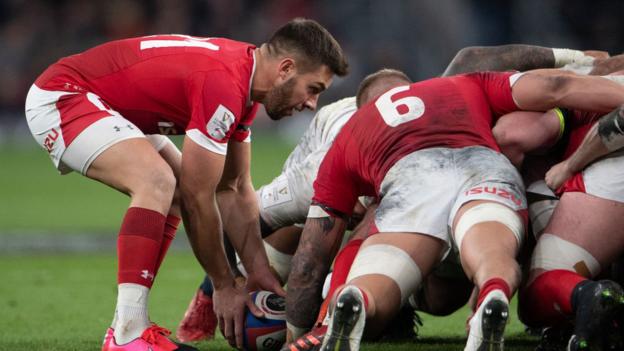
Drastically reducing the amount of scrums during a game, removing the choke tackle, limiting numbers in the maul and speeding up rucks are among 10 optional law trials approved by World Rugby to help reduce the risk of coronavirus transmission in the sport.
A number of hygiene procedures for training and matches have also been formally recommended by rugby union's world governing body.
Implementation of the measures will be at the discretion of individual unions based on the prevalence of the virus in their territory and specific government advice.
"We have extensively evaluated the perceived risk areas within the game," said World Rugby boss Sir Bill Beaumont.
The law trials were drawn up after an analysis of 60 matches by the governing body's Law Review Group, which comprises coaches, players, match officials, medics and law specialists.
However the group decided against compulsory global application of the trials given the variation of coronavirus across nations.
World Rugby expect the trials to apply more to the community game than the elite end, where testing is likely to be more widespread, although the introduction of an "orange card" is specific to the professional game.
Among the law trials:
With tight-five forwards considered most at risk of transmission, World Rugby estimate that the changes could reduce scrum contact exposure by more than 30%, reduce contact exposure at the ruck by around 25%, and reduce maul contact exposure by at least 50%.
Hygiene measures being recommended include hand and face sanitisation before and after a match, and ball washing before, during and after games.
Where possible, players will be asked to change their kit at half-time, and have been advised to refrain from team huddles and close-contact celebration, as well as spitting and nose clearance.
In training, scrum practice should be against a machine rather than another set of forwards, and high-transmission risk training, such as scrummaging and mauling, should be avoided within 48 hours of a match.
The Rugby Football Union say they "recognise the work World Rugby has done", but will be issuing their own advice to clubs in due course.
"The RFU has its own review underway looking at the options for return to training and return to play rugby for clubs in England," said an RFU spokesperson.
"When government advice on social distancing measures are lifted, specific RFU guidance will be announced and provided to clubs."















 Phone: (800) 737. 6040
Phone: (800) 737. 6040 Fax: (800) 825 5558
Fax: (800) 825 5558 Website:
Website:  Email:
Email: 






